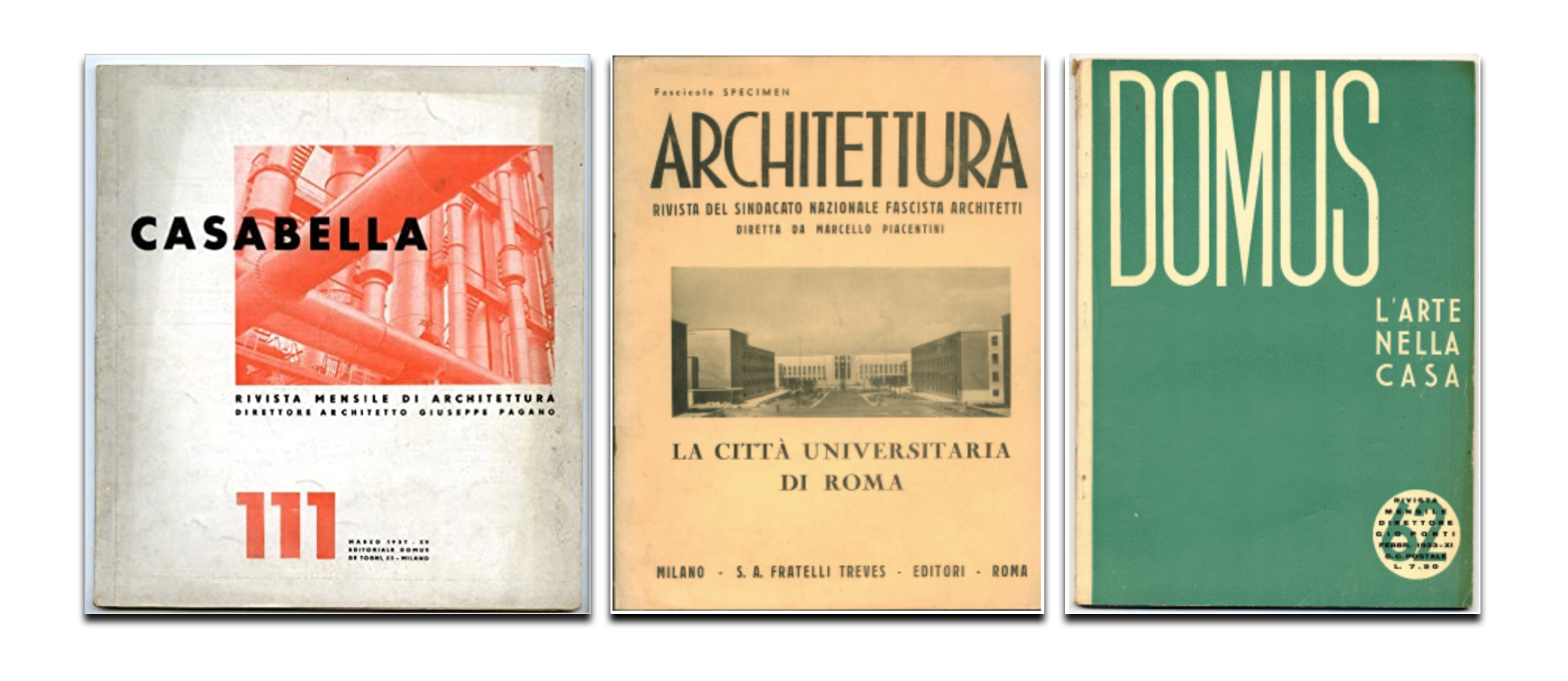PAST TALKS 2021
2 November 2021
2 November 2021
Catholicism and Historicism: The Lost Chapels of the ‘Collegio Irlandese’ and the ‘Collegio Teutonico’ in Rome
JASPER VAN PARYS
gta, ETH Zurich/Swiss Institute in Rome
Respondents:
Erin Giffin (I Tatti, The Harvard University Center for Italian Renaissance Studies)
Nora Guggenbühler (University of Zurich)

Jasper seeks to contribute to the understanding of architectural copying. This he does by questioning the prominence which archaeological copies acquired as mediators in the problematic relationship of Catholicism and historicism. In this contribution to the DocTalks, Jasper will present his most recent archival findings. The findings relate to two chapels in Rome. These chapels were created in the late 19th century and destroyed in the 1960s. If Irish and German priests of this period travelled to Rome to study theology, they lived their devotional lives in these buildings.
***
‘Il nostro programma’: Architettura and the Union of Fascist Architects’ Quest for Power
ILYAS AZOUZI
University College London / Swiss Institute in Rome
Respondent: Silvia Balzan (University of Basel)

During the 1930s, architectural reviews in Italy reflected the State’s desire to entrust the materialisation of its mythology into the architectural world. Through an analysis of state sponsored journals, my aim is to expose how periodicals became a real instrument of propaganda and a clear mirror of the effervescent architectural culture under the auspices of fascism. I will explore how the periodical Architettura – the Union of Fascist Architects official publication – became an ideal platform to stage the ideological and material associations between architecture and politics, and how it allowed the Union to strengthen its own control. My analysis situates a shift in attitudes with both the proclamation of the Empire in 1936 and the desire to totalitarianism expressed by the Sindacato Nazionale Fascista Architetti and its protagonists. I argue that the Union’s desire for unity led its leaders to plan the development of an architecture of power both at home and in the colonies; an imperial architecture for the fascist “civilization” which would, in sum, reflect its own authority over the profession. In this context, Architettura and the other state sponsored periodicals played a crucial role in disseminating the new agenda of the Sindacato Nazionale Fascista Architetti.
A review of Rationalist oriented publications Casabella and Domus should disclose the reality of theses aspirations, emphasising how divergent interpretations and critics against the Union led dissident voices to stand up.
A review of Rationalist oriented publications Casabella and Domus should disclose the reality of theses aspirations, emphasising how divergent interpretations and critics against the Union led dissident voices to stand up.